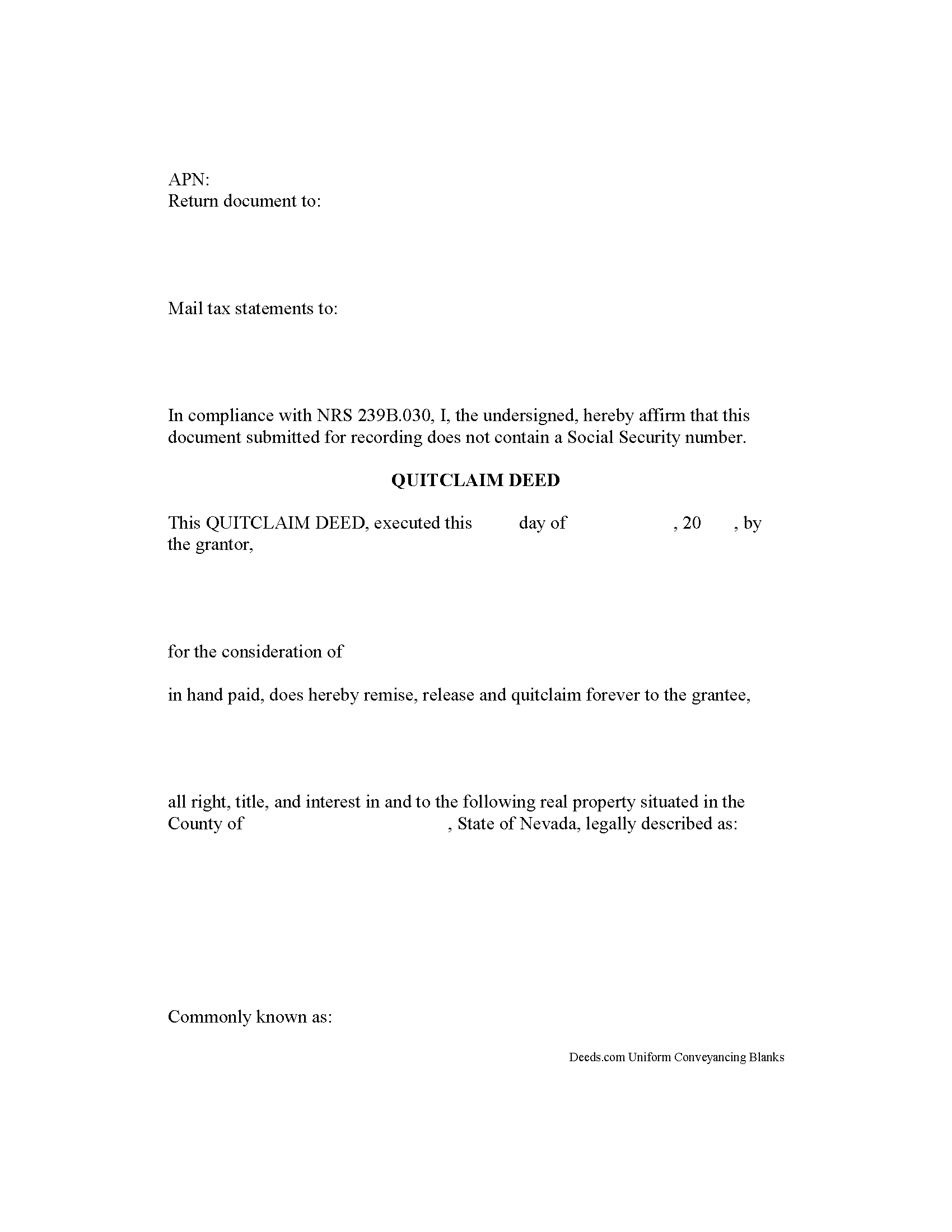Download Nevada Quitclaim Deed Legal Forms

Nevada Quitclaim Deed Overview

A conveyance by quitclaim deed must be signed by the grantor and acknowledged or proved in a manner permissible by the Nevada Revised Statutes (NRS 111.105). The document must be recorded in the county where the property is located. A county recorder in Nevada may refuse a quitclaim deed for recordation and filing if it does not contain the mailing address of the grantee, the assessor's parcel number assigned to the real property, and the name and address of the person to whom a statement of taxes will be mailed. This is not an exhaustive list of requirements. Please read the Nevada Revised Statutes Property Rights and Transactions title for a complete list of recording requirements for quitclaim deeds.
Recording a quitclaim deed in Nevada serves to provide notice to third persons (NRS 111.315). An unrecorded quitclaim deed is valid only between the parties to the conveyance. Further, an unrecorded quitclaim deed is void against a subsequent purchaser, in good faith and for a valuable consideration, of the same real property (or portion thereof), for which his/her conveyance is first duly recorded (NRS 111.325). Once a quitclaim deed is acknowledged or proved and certified, and recorded in the manner described in the Nevada Revised Statutes, it will, from the time of filing, impart notice of the content to all persons. Subsequent purchasers and mortgagees will be deemed to purchase and take with notice when the quitclaim deed has been properly recorded and filed (NRS 111.320).
(Nevada QD Package includes form, guidelines, and completed example)